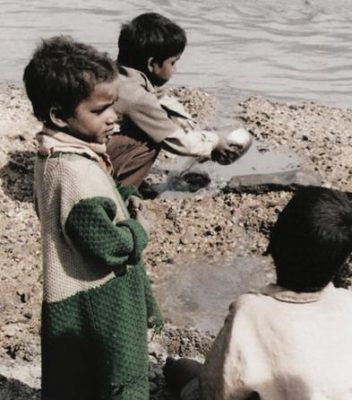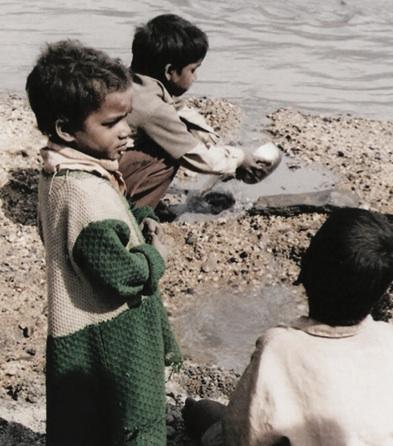 When President Obama made his climate speech at Georgetown University in which he urged an end to almost all public financing of coal, Jim Vallette, former research director of the Sustainable Energy & Economy Network at IPS, dropped me an e-mail and we reflected on how many years it had taken us to get to this point.
When President Obama made his climate speech at Georgetown University in which he urged an end to almost all public financing of coal, Jim Vallette, former research director of the Sustainable Energy & Economy Network at IPS, dropped me an e-mail and we reflected on how many years it had taken us to get to this point.
The first visit I made to a World Bank-financed coal mine in India in 1996 is still etched in my mind. Traveling for miles by train, bus and then taxi to get to the site, I saw first-hand what our “poverty alleviation” funds were doing. It was a moonscape, black, grey, with nauseating smoke billowing out of perpetual fires, deep underground. A child covered in flyash, was standing next to a black river, desperately trying to get a drink of clean water.
I later learned the wells had all run dry; the coal plant had used it all for its cooling towers. And the river was black with flyash, dumped by the World Bank-financed Talcher coal burner directly into the Nandira River. The only way this child could get a drink of water was to try to dig a hole in the sandy riverbed and hope that would filter out the pollutants.
I came back to Washington in 1996, and Jim and I got fired up to fight the public financing of coal, much of it being done in the name of poverty alleviation and sustainable development.
When we released a series of reports examining public financing of fossil fuels, starting with the World Bank, then on to the EBRD, then, in 1999 on OPIC and Ex-Im, we didn’t know when these banks we had set our sites on would finally be forced out of coal. But we knew it had to come.
That day came on June 25, when we finally heard the following words uttered by President Obama:
“Today, I’m calling for an end of public financing for new coal plants overseas unless they deploy carbon-capture technologies, or there’s no other viable way for the poorest countries to generate electricity. And I urge other countries to join this effort.”
Were these words to be believed? On July 16, the World Bank approved a new energy strategy which would effectively phase out the Bank’s institutional support for coal. The paper “affirms that the World Bank Group will ‘only in rare circumstances’ provide financial support for new greenfield coal power generation projects, such as ‘meeting basic energy needs in countries with no feasible alternatives.'”
Then, on July 18, we got the following news: The US Export-Import Bank had rejected a coal plant in Vietnam. It was the first rejection of a coal burner since Obama’s climate speech of several weeks ago.
This day came too late for that child and others in that community in India, who were forced to drink poisoned water. And I’m not pleased with the caveats Obama placed on his pledge. Nor am I pleased with the possibility that the World Bank, Ex-Im Bank and others may simply switch from coal to gas, especially if that gas is derived from “fracking,” which can be worse for our already unstable climate than coal.
But hopefully, this is the dawn of a new day, when public financing of coal mines and power plants around the world is no longer acceptable. It’s not enough, of course, but after 16 years of persistent pressure from IPS and other groups, our government seems to finally be listening.
